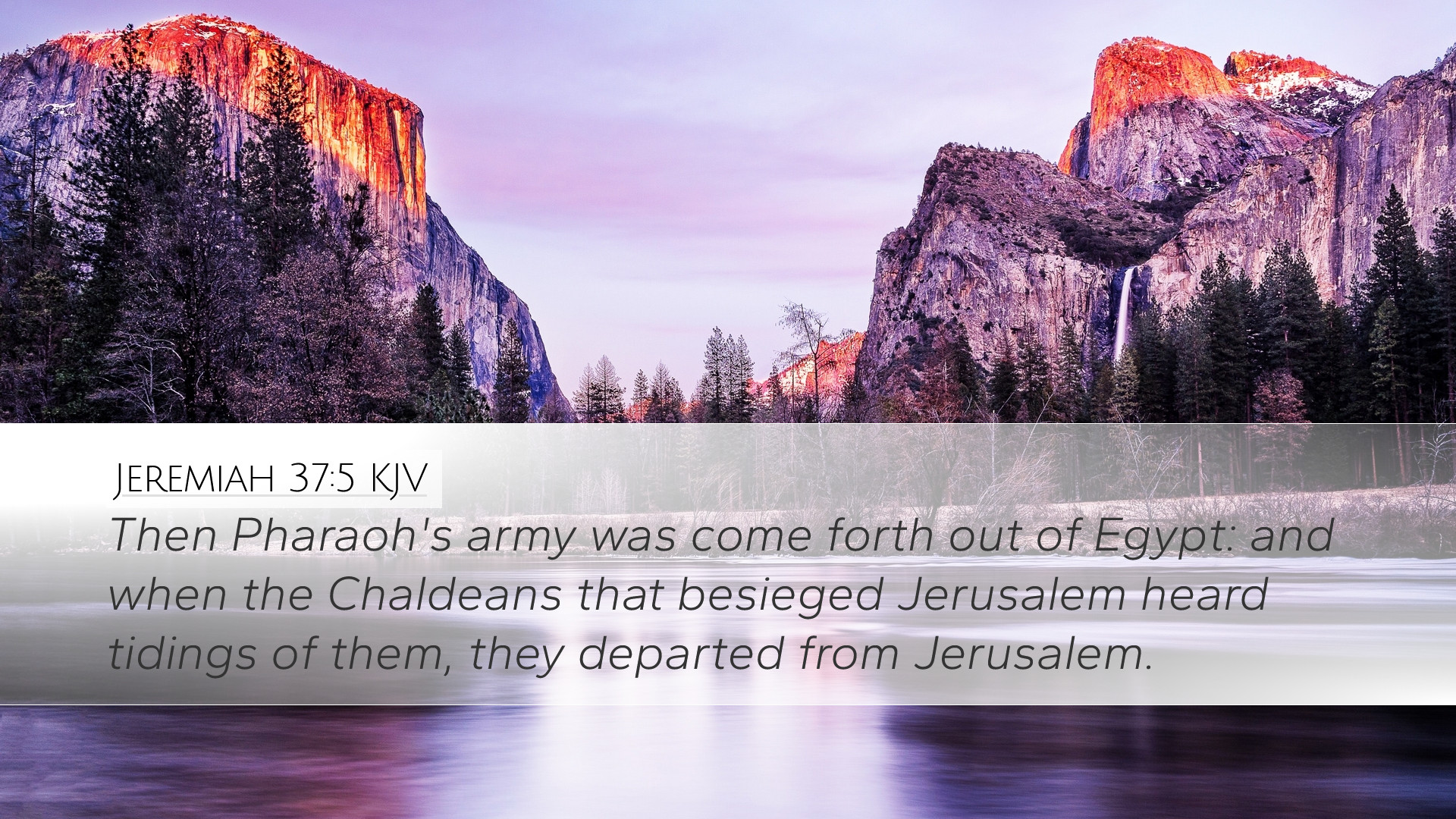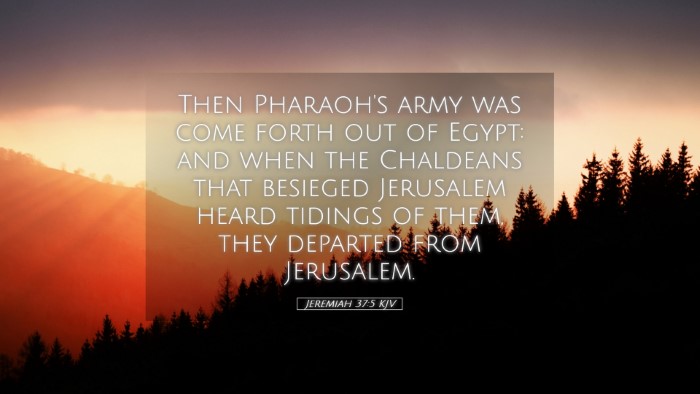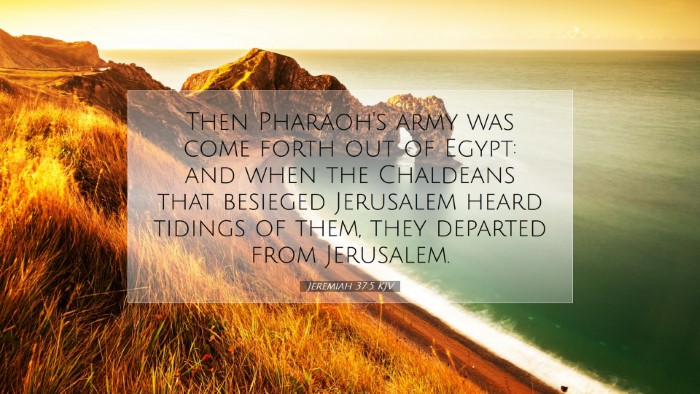Commentary on Jeremiah 37:5
Jeremiah 37:5 states: "Then Pharaoh's army had come forth out of Egypt: and when the Chaldeans that besieged Jerusalem heard tidings of them, they departed from Jerusalem." This verse depicts a pivotal moment during the Babylonian siege of Jerusalem, wherein the army of Pharaoh provides a temporary respite for the beleaguered city. In analyzing this passage, we draw from several public domain commentaries, offering insights that can deepen the understanding of scholars and pastors alike.
Contextual Background
The historical context of Jeremiah 37:5 is crucial for understanding its implications. The siege of Jerusalem by the Chaldeans (Babylonians) is an event laden with prophetic significance. Matthew Henry highlights how this period represents a time of great distress for the people of Judah, as they face the impending judgment that God has declared through Jeremiah. This siege is indicative of their spiritual state and serves as a backdrop for the prophet’s messages.
Interpretation of the Verse
Albert Barnes notes that Pharaoh's army had come forth from Egypt at a time when the Chaldeans were tightening their siege on Jerusalem. This external event sets the scene for the shifting dynamics of power in the ancient Near East. The departure of the Chaldeans from Jerusalem upon hearing news of Pharaoh’s advance presents a momentary relief, though it is temporary and serves as a foreshadowing of the eventual fate of Jerusalem.
The phrase "when the Chaldeans…heard tidings" underlines the notion of perception and reaction in wartime. Adam Clarke explicates how this demonstrates God’s sovereignty over nations; a situation arising from Egypt's unexpected involvement leads to action by the Chaldeans. This teaches us about the providential hand of God in human affairs.
Theological Implications
This verse embodies several theological themes relevant to pastoral reflection and scholarly study, such as:
- Divine Sovereignty: This passage illustrates that God is ultimately in control of the affairs of nations. The arrival of the Egyptian forces is a reminder of God's intervention in the history of His people, showing that He can use any circumstance to enact His will.
- Human Response: The departure of the Chaldeans hints at the complexity of human choices in relation to divine sovereignty. It reflects the idea that even in dire circumstances, God provides opportunities for repentance and deliverance.
- The Nature of Hope: The temporary relief mentioned serves as a poignant reminder of misplaced hope. The people of Judah had relied on Egypt for salvation, which ultimately would prove ineffective. This mirrors the present struggle of many to find hope in worldly solutions rather than in God.
Application for Today
Both pastors and laypeople can draw lessons from Jeremiah 37:5 that resonate with contemporary issues:
- Trust in God: Like Judah, modern believers often face situations that seem insurmountable. This verse encourages reliance on God rather than external aids or alliances that may appear promising but ultimately fail.
- The Illusion of Security: Judah’s brief sense of security is a stark reminder that earthly powers can rise and fall. Faith communities must focus on the eternal security found in Christ rather than transient worldly entities.
- Responding to Crisis: The call to act faithfully in the face of uncertainty is paramount. Believers should be equipped to respond with faith, seeking God’s guidance through prayer and Scripture.
Conclusion
Jeremiah 37:5 is a rich source for reflection on the themes of divine sovereignty, human choice, and the nature of true hope. The insights from Matthew Henry, Albert Barnes, and Adam Clarke combine to illuminate the profound truths contained within this verse, making it a significant text for pastors, students, theologians, and anyone studying the dynamics of faith in the context of adversity. As we interpret and apply God’s Word, may we find encouragement and strength in knowing that God remains sovereign over all circumstances.


